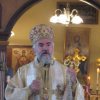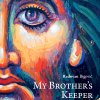KALAMAZOO, Mich. (NEWSCHANNEL 3) – Western Michigan University becomes a "medieval Mecca" one weekend every year, and that weekend just began.
The 48th International Congress on Medieval Studies kicked off Thursday on WMU's campus.
At this mostly academic event, it's more common to find experts debating medieval topics than people parading around in costume or jousting.
.More than 3,000 of the world's leading experts on the Middle Ages are in Kalamazoo to present on nearly every medieval topic under the sun, from medieval medicine to medieval punishments.
Many travel from outside the country to be in West Michigan for the event.
"This is my first time ever in the States!" says Jelena Erdeljan, who flew here all the way from Serbia.
Erdeljan is a professor at the University of Belgrade. She made her first trip to America specifically for the Medieval Congress.
"It's the first time ever that there's a special session devoted entirely to medieval Serbia," Erdeljan says. "It's a chance to present our culture to a wide audience from all over the world. For us, that's important because I don't think too many people know about Serbian culture of the Middle Ages!"
"Medieval Serbia" is one of nearly 600 fascinating topics at this year's Congress, ranging from "medieval conspiracy theories" to medieval "social networking." There's even a session about "medieval themes in the contemporary newsroom."
Read more at WWMT-TV




